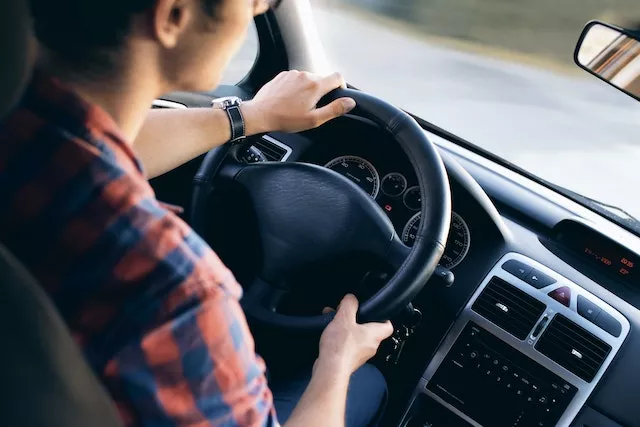By Abigail Lindner
In September, registered voters in Massachusetts received the familiar red “Information for Voters” booklet, which provides, among other points, details on the questions that will appear in the November state election ballot.
The questions that appear in the booklet are those submitted to the Secretary of the Commonwealth by the beginning of July. Not included, then, is a fourth, which was not certified for inclusion in the State Election Ballot until September.
Question 4 on the 2022 Massachusetts State Election Ballot pertains to a law titled “An Act Relative to Work and Family Mobility,” hereafter abbreviated WFM for brevity.
Governor Charlie Baker vetoed the proposed legislation in May of 2022, but the Massachusetts House of Representatives and the State Senate voted to override Governor Baker’s veto the following month. Consequently, the act became law. It has also become the most controversial of the questions on the November ballot.

Photo Credit: JESHOOTS, Pexels
What This Law Changes
The gist of the law is given in Section 1 of its text:
An applicant for a license under this section who does not provide proof of lawful presence, including an applicant who is ineligible for a social security number, shall be eligible for a Massachusetts license to operate a motor vehicle if the applicant meets all other qualifications for licensure and provides satisfactory proof to the registrar of their identity, date of birth and Massachusetts residency
As laws go, this is dense, and may not be clear after the first read. Basically, WFM allows Massachusetts residents who cannot provide proof of lawful presence in the United States to obtain driver’s licenses, provided that they fulfill other requirements, such as passing a road test, and have proof of identity and residence. It includes:
- undocumented immigrants (people who cannot provide “proof of lawful presence”)
- noncitizens who do not have work visas (“an applicant who is ineligible for a social security number”)
A YES vote in the November elections will keep the law instated while a NO vote will repeal the law.
What This Law Will Accomplish
WFM is not the first of its kind. Massachusetts is the eighteenth state to pass a law that allows undocumented or unauthorized immigrants to obtain driver’s licenses (or certificates that have the same function as driver’s licenses). The first, Washington, passed legislation in 1993 that allowed applicants without social security numbers to receive driver’s licenses if they could provide proof of identity and state residency.
The rationale for granting noncitizens driver’s licenses is simple: Training, testing, licensing, and insuring every driver will make for safer roads. In Massachusetts, former transportation secretary Fred Salvucci adds, “It would ensure that more drivers pass the road test and become insured, while also allowing families to perform essential tasks legally, like driving their children to the doctors.” WFM has been endorsed by a majority of Massachusetts city police chiefs and district attorneys.
The argument that broader licensure allowances would increase road safety has support from research in states that have had such laws in place for a number of years. A study done in California two years after passage of AB60 in 2015, for instance, found that, rather than increasing the incidence of accidents or fatalities as some opponents feared, AB60 may have reduced such traffic incidents. Compared to 2014, hit-and-run accidents in particular decreased significantly, with declines between 7% and 10%. A similar effect was observed in Connecticut.
What Opponents Are Saying
Two main concerns appear among opponents of WFM:
- The Registry of Motor Vehicles is not equipped to verify non-U.S. documents that applicants under this law may submit to qualify for a license.
- The law could open a backdoor for noncitizens to register to vote, given that the RMV automatically registers all motorists applying for a license.
In response to the second concern, Senator Brendan Crighton, from the 3rd Essex senate district, notes,
[T]here are systems in place that already we have folks that are not citizens here that aren’t allowed to vote but are able to drive--DACA recipients, TPS recipients, green card holders, visa holders—so we have folks here you can earn a driver’s license showing you can drive but you are not a citizen so you can’t vote it’s nothing new.
The concern is also addressed within the law itself; Section 9 requires the RMV to consult with the state secretary to “establish procedures” and “promulgate regulations” to ensure that applicants without proof of lawful presence “shall not be automatically registered to vote.”
The response of supporters to the first concern is similar. The RMV has been trusted to review documents for other noncitizens up to this point (e.g., visa holders) and there is little, if anything, substantially different in evaluating the documents from individuals applying for driver’s licenses under this law.
Where We Stand on Question 4
The Massachusetts Sierra Club supports Yes on Question 4. This commonsense law will advance transportation justice in the Commonwealth, where, for many, driving remains the only option to go to work and make essential trips. Voting YES on 4 will improve mobility and make our communities safer by ensuring that all drivers on our roads are tested, licensed, and insured.